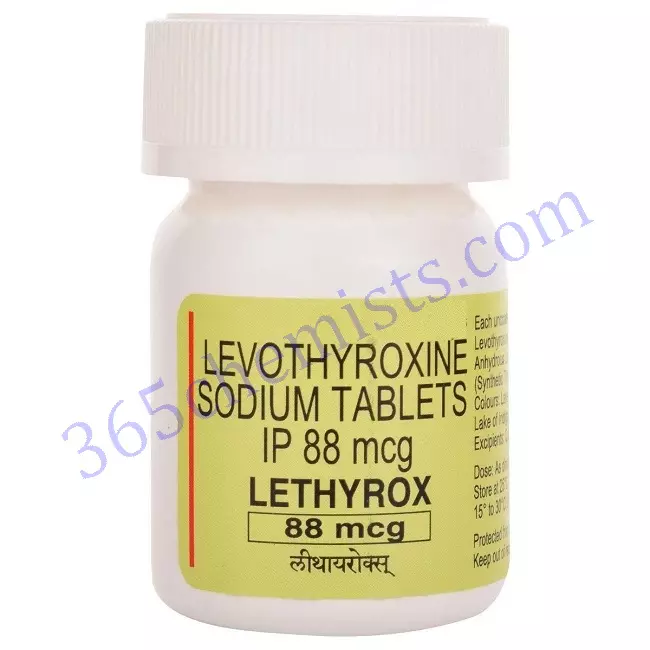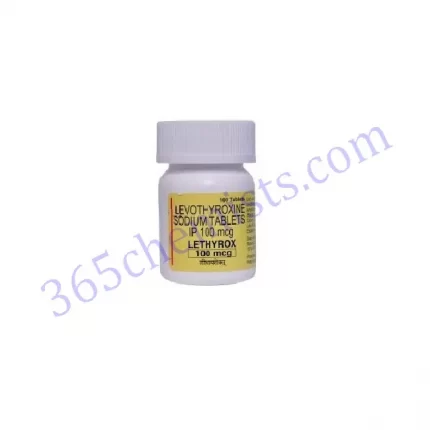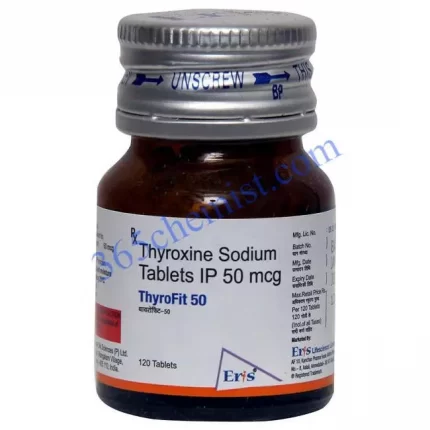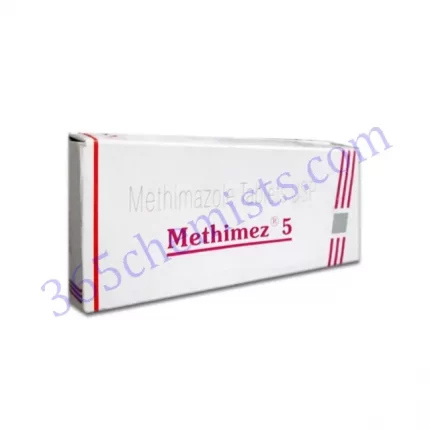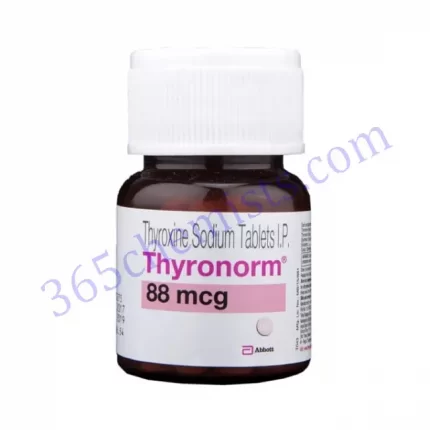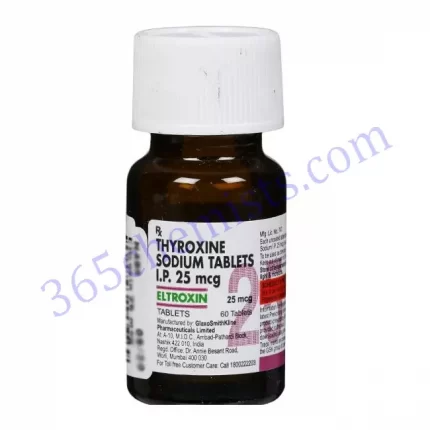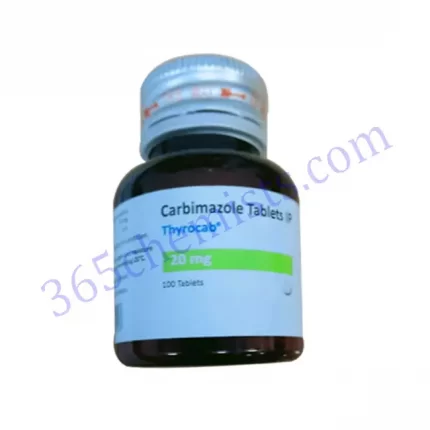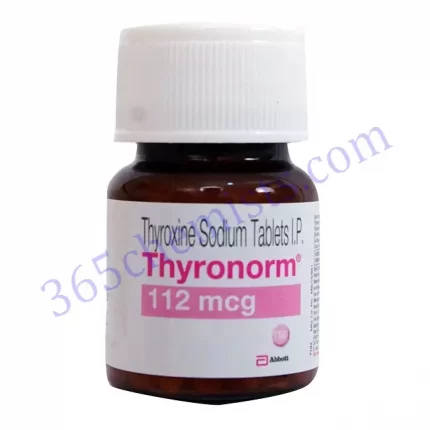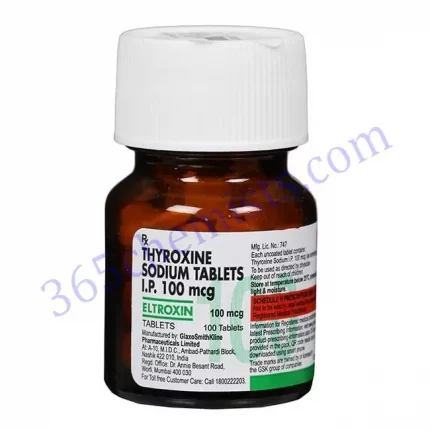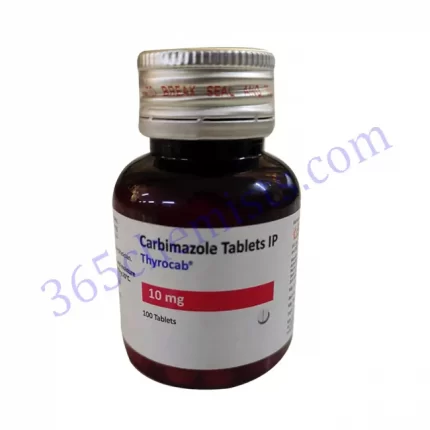Lethyrox 88mcg Tablet (Thyroxine 88mcg)
Thyroxine is the active component of the medication that is sold under the brand name Lethyrox 88 mcg Tablet. The thyroid gland is the organ that naturally produces the hormone known as thyroxine, but scientists have also created a synthetic version of the hormone. The primary indication for the use of the Lethyrox 88 mcg Tablet is in the medical management of hypothyroidism, which is characterised by an underactive thyroid gland that fails to produce an adequate amount of thyroid hormone. The body’s normal levels of thyroid hormone can be more easily achieved with the help of thyroxine supplementation.
Uses of Lethyrox 88mcg Tablet:
Tablets of Lethyrox 88 mcg are often recommended for patients who have been diagnosed with hypothyroidism, a condition in which the thyroid gland does not produce an adequate amount of the hormone thyroid. It helps alleviate the symptoms of hypothyroidism, such as fatigue, weight gain, cold intolerance, and sluggishness. It is used to supplement the levels of thyroid hormone that are deficient. The purpose of thyroxine replacement therapy is to bring the levels of thyroid hormone back to normal and to restore healthy metabolic function.
Dosage and Administration:
It is possible for the recommended dosage of Lethyrox 88mcg Tablet to change depending not only on the severity of the hypothyroidism but also on the patient’s age, weight, and general state of health. It is essential to ensure that the dosage and administration instructions provided by your healthcare provider are strictly adhered to at all times. Oral consumption of the tablet is required, and it is recommended that it be done so first thing in the morning on an empty stomach at least half an hour before breakfast.
The administration schedule for Lethyrox 88mcg Tablet is customised for each patient in accordance with their individual requirements. Your healthcare provider will determine the appropriate dosage for you and make any necessary adjustments to it based on regular monitoring of your clinical symptoms and levels of thyroid hormone. It is essential to take the medication on a regular basis and at the same time each day in order to keep the concentration of the drug constant in the body.
You should not stop taking Lethyrox 88mcg Tablet or adjust the dosage at any time without first consulting your healthcare provider. Individuals diagnosed with hypothyroidism are typically required to take thyroxine replacement therapy for the rest of their lives.
Side Effects of Lethyrox 88mcg Tablet:
Lethyrox 88mcg Tablet, like any other medication, carries with it the potential to cause certain adverse effects in some people. Headaches, nervousness, heart palpitations, increased appetite, and loss of weight are all common adverse effects of this medication. These unwanted effects are typically mild and short-lived, and they go away once your body becomes accustomed to the medication. However, you should talk to your doctor if any of these side effects continue or get worse after taking the medication they were prescribed for you.
Tablets of Lethyrox 88 mcg could, on extremely rare occasions, result in more serious adverse effects, such as allergic reactions or changes in the rhythm of the heart. Rash, itching, swelling of the face, lips, tongue, or throat, as well as difficulty breathing, are some of the signs that an allergic reaction has taken place. Alterations in the heart’s regular rhythm can manifest as a racing or erratic heartbeat. Seek immediate medical attention if you experience any of these serious adverse effects from the medication.
Precautions and Warnings:
Before beginning treatment with Lethyrox 88mcg Tablet, it is important to discuss any preexisting medical conditions, allergies, or medications that you are already taking with your healthcare provider. It is essential to discuss any past medical conditions, such as diabetes, adrenal gland issues, or heart disease, as well as any other medications that could potentially interact with thyroxine.
There is a possibility of an interaction between Lethyrox 88mcg Tablet and other medications, including those used to treat diabetes, anticoagulants, and certain antidepressants, amongst others. For this reason, it is absolutely necessary to inform your doctor about all of the medications that you are currently taking in order to prevent the possibility of adverse drug reactions.
Women who are pregnant or breastfeeding should use the Lethyrox 88mcg Tablet with extreme caution because the dosage may need to be adjusted while the woman is pregnant or breastfeeding. Before prescribing this medication to you, your healthcare provider will carefully consider both the benefits and the risks associated with it.
Conclusion:
One of the medications that is utilised in the treatment of hypothyroidism is known as the Lethyrox 88mcg Tablet. The active component of this product is thyroxine, and this helps to compensate for inadequate levels of thyroid hormone in the body. Your healthcare provider should be followed in terms of the dosage and the way the medication should be administered. Even though it is well tolerated by most people, the Lethyrox 88mcg Tablet has the potential to cause adverse effects such as changes in heart rhythm and allergic reactions. Individuals who have certain medical conditions or who are taking medications that may interact with thyroxine should be treated with caution. Precautions should be taken.

